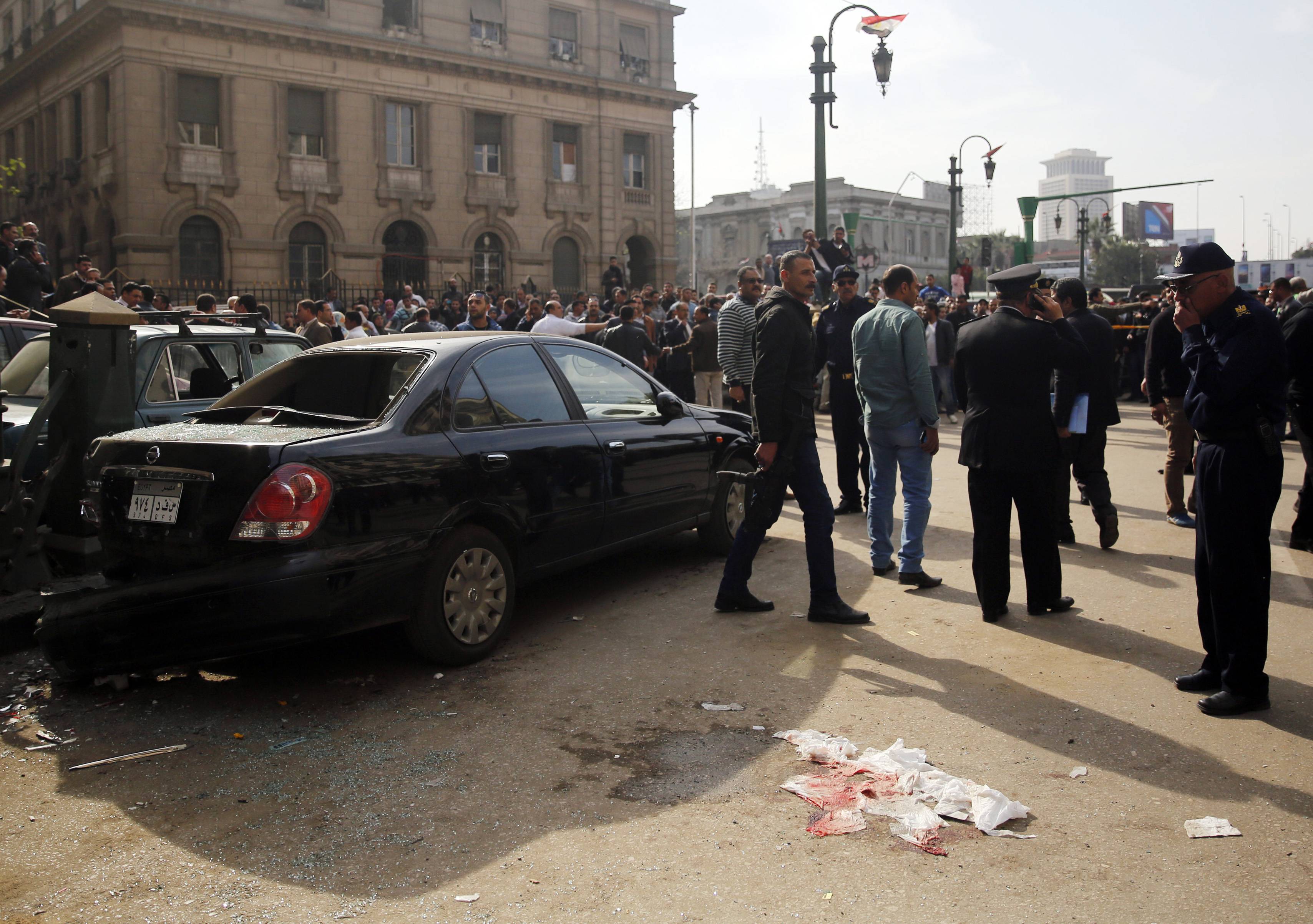Latest NEWS
- Aswat Masriya, the last word
- Roundup of Egypt's press headlines on March 15, 2017
- Roundup of Egypt's press headlines on March 14, 2017
- Former Egyptian President Hosni Mubarak to be released: lawyer
- Roundup of Egypt's press headlines on March 13, 2017
- Egypt's capital set to grow by half a million in 2017
- Egypt's wheat reserves to double with start of harvest -supply min
- Roundup of Egypt's press headlines on March 12, 2017
Interior Ministry detains defendant behind High Court building blast

Security officials inspect the scene of a car bomb blast in front of The High Court in downtown Cairo, March 2, 2015. At least eight people were wounded in an explosion near a top court building in central Cairo on Monday, security sources said. REUTERS/Amr Abdallah Dalsh
CAIRO, Mar 19 (Aswat Masriya) - Egypt's Interior Ministry announced on Thursday it has arrested an alleged Muslim Brotherhood member accused of planting two explosive devices outside the High Court building in Central Cairo earlier in March, in coordination with the militant group Ajnad Misr.
An Improvised Explosive Device (IED) exploded in front of the main gate of the High Court in central Cairo on March 2, killing two citizens and injuring 9 others.
In a televised statement, the ministry's spokesman Hany Abdel Latif identified a 23-year old detained man as one of the two people behind the blast. The other suspect in the case, an alleged member of Ajnad Misr, remains at large.
Abdel Latif said the two suspects planted two explosive devices in the vicinity of the High Court on March 1 night, then returned the next morning to detonate them.
The statement included a video of a young man identified as the 23 year-old detainee, admitting to planting the explosive devices. The man in the video also said he had planted explosive devices in seven other separate incidents, the latest of which was outside the parliament building, when he was arrested.
Among the explosion operations the man confessed to was an explosion in the vicinity of a police station in Giza on January 6. A police officer was killed while trying to defuse an Improvised Explosive Device (IED) there.
Ajnad Misr had claimed responsibility for the aforementioned attack, as well as several other bombing attacks in the capital.
Abdel Latif said that investigation revealed that "fugitive" Muslim Brotherhood leaders have "amended" the group's ideology in a manner which "officially cedes the peacefulness of the movement" to merge with other "terrorist and extremist" organisations.
The Interior Ministry identified a group of organisations which it accused of working with the Muslim Brotherhood to create "armed cluster cells", such as the Sinai-based Ansar Bayt al-Maqdis, Ajnad Misr, al-Jamaa al-Islamiya and Hazemoon.
The said cluster cells come in the form of obscure organisations which have claimed responsibility for recent attacks, the ministry said.
"[This was done so that these groups] claim responsibility for terrorist incidents to suggest to the public opinion the existence of numerous extremist movements and to rule out terrorism as an accusation faced by the Muslim Brotherhood," Abdel Latif said.
Bombings and shootings targeting security forces have surged since the military ouster of Islamist president Mohamed Mursi in July 2013 following mass protests against his rule.
Egypt listed Mursi's Brotherhood as a terrorist organisation in December 2013 and insists it is behind the stringent wave of militancy which has targeted security personnel since his ouster. The Brotherhood continuously denies the accusations.










